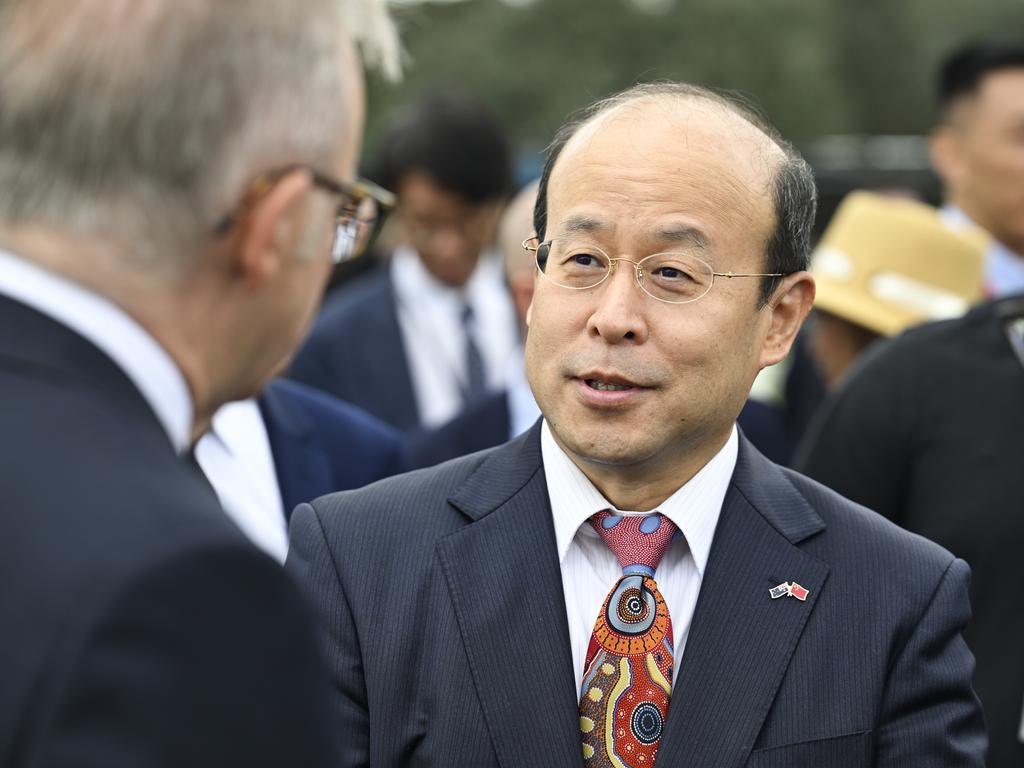Australia’s exports to China slump as geopolitics trouble Australian firms
A slowdown in Chinese economic growth, a flurry of regulatory changes in Beijing and a surge in geopolitical tension after Donald Trump’s return to the White House have added to challenges for Australian businesses operating in China.

Half of Australian firms engaged in the Chinese market have begun or are increasing the diversification of business and supply chains from China, as geopolitical risks hang over Australia’s biggest trade partner despite the improvement in bilateral relations.
The annual “Doing business in China report” by the Beijing-based business lobby AustCham China also found widespread praise for the Albanese government’s stabilisation efforts, with half of respondents saying it had made doing business in China easier and a fifth saying it had resulted in increased exports.
However the slowdown in Chinese economic growth, a flurry of regulatory changes in Beijing and a surge in geopolitical tension exacerbated by Donald Trump’s return to the White House have added new challenges for Australian businesses operating in China.
“Companies continue to navigate regulatory complexity, economic uncertainty and geopolitical risks,” said AustCham China chair Vaughn Barber.
“The lesson from this report — and from my recent conversations with businesses in China and Australia — is that companies are not disengaging. They are adapting, weighing new risks, and seeking trusted partners and institutions to help navigate forward,” Mr Barber said.
The report, the most authoritative snapshot of Australian business sentiment towards China, was released as DFAT trade data showed Australia’s exports to China slumped by 14 per cent to $39.8 billion in the first quarter of the year compared to the same period in 2024.
An 18 per cent fall in iron ore exports to $24.4 billion in the first three months of 2025 far overwhelmed gains by Australian agricultural exports such as barley, wine and lobster, among the products allowed access to the Chinese market after being black-listed for years by Beijing.
In the first three months of 2025, Australia’s exports to the world, less China, increased by almost 5 per cent compared to the previous year.
The new survey, which was supported by UTS’s Australia-China Relations Institute, found most Australian businesses in China remain committed to operating in the world’s second biggest economy, which even at its slowing rate is forecast by the IMF to make up almost one third of global growth in 2025.
Three quarters of Australian companies said their China businesses were profitable in 2024, up from 58 per cent in 2023.
“We’re being pressured to diversify our investments, but it’s hard to balance that with the opportunities still available in China,” said one of 400-odd senior Australian business figures who participated in the survey.

While China remains by far Australia’s largest trade partner, only 20 per cent of firms surveyed said the Chinese market was worth more than 40 per cent of their total revenue.
Only 16 per cent of Australian firms said China was their top investment priority, while half said China was one of their company’s top three priority markets.
A third of respondents said they were looking to expand their operations in China. Almost as many said their top area of investment was in “government affairs” roles, as they seek help to navigate an increasingly complicated outlook.
“The geopolitical backdrop is still affecting how comfortable we feel about long-term investments in China,” said another senior Australian business figure, who participated in the survey.
Trade Minister Don Farrell has spoken bullishly about the future of Australia’s biggest trade relationship and this week was invited by China’s Commerce Minister to attend a politically-important trade show in Shanghai in November.
Senator Farrell has distanced the Albanese government from the Trump administration in remarks that were included in the foreword to the AustCham report and have been spread in Chinese state media.
“We continue to engage with China based on our national interests and not on what the Americans may or may not want,” the Trade Minister said recently.
“We don’t want to do less business with China, we want to do more business with China,” Mr Farrell said.
Half of the Australian firms said business in China had become easier as bilateral relations had improved under the Albanese government.
A fifth said their exports to China had increased, with recent DFAT trade data showing barley, beef, lobster and wine have been big beneficiaries. But most Australian businesses — 62 per cent — said there was no significant impact.
“Despite the lower political tensions, we’re still navigating a lot of the same obstacles,” said one senior Australian business figure who participated in the survey.







To join the conversation, please log in. Don't have an account? Register
Join the conversation, you are commenting as Logout